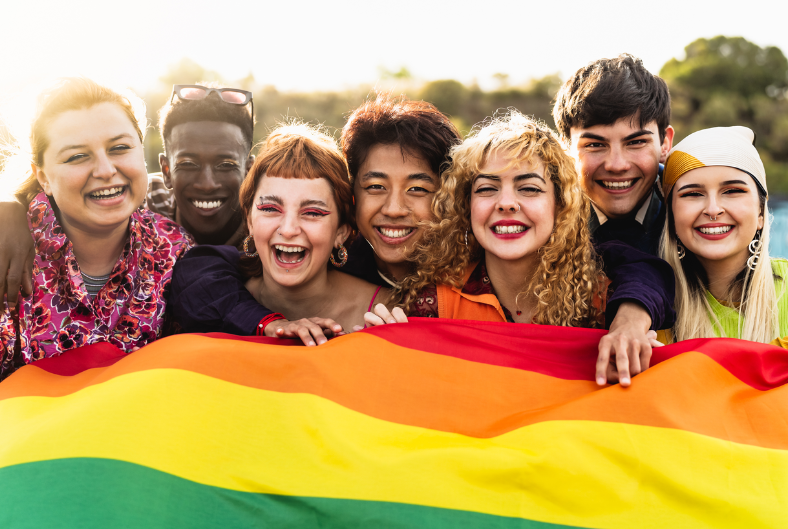In contemporary society, the conversation around mental health has gained significant traction, emphasizing the importance of breaking down barriers and ensuring equitable access to services for marginalized communities. Among these communities, Black LGBTQ+ individuals face unique challenges that intersect with both racial and sexual orientation biases, contributing to disparities in mental health outcomes.
Ensuring adequate mental health support for the Black community is crucial, and the availability of black mental health therapists plays a pivotal role. Recognizing the unique challenges faced by Black individuals, it is imperative to support black mental health by providing accessible and culturally sensitive resources. In fostering mental health for Black people, communities must prioritize the establishment of mental health resources for the Black community tailored specifically for their needs. By embracing the expertise of black mental health therapists and investing in dedicated mental health resources for the Black community, we can contribute to a more inclusive and supportive environment for mental well-being.
This article explores the obstacles Black LGBTQ+ individuals encounter and looks into strategies for improving their access to mental health services.
Understanding the Intersectional Challenges
Black LGBTQ+ individuals navigate a complex intersection of identities, facing discrimination on multiple fronts. Racial bias, homophobia, and transphobia converge, leading to increased rates of mental health issues within this demographic. Systemic inequalities, such as limited access to education, employment, and healthcare, further compound these challenges. The stigma associated with mental health in both the Black and LGBTQ+ communities adds an additional layer of complexity, discouraging individuals from seeking the support they desperately need.
Barriers to Mental Health Access
Stigma and Discrimination
Persistent stigmas surrounding mental health in both the Black and LGBTQ+ communities contribute to reluctance in seeking help. Fear of judgment and discrimination often deter individuals from accessing mental health services.
Cultural Competence
Mental health services may not always be culturally competent, lacking understanding of the specific challenges faced by Black LGBTQ+ individuals. A lack of cultural sensitivity in therapeutic approaches can hinder effective communication and treatment.
Economic Disparities
Economic disparities disproportionately affect Black communities, limiting access to quality mental health care. Affordability, lack of insurance coverage, and financial constraints create substantial barriers to seeking professional help.
Inadequate Representation
The underrepresentation of Black LGBTQ+ individuals in mental health professions can contribute to feelings of isolation and hinder the establishment of trust between clients and providers. Representation is crucial for fostering a sense of understanding and relatability.
Strategies for Improvement
Culturally Competent Care
Mental health services must prioritize cultural competence, incorporating training for professionals on the unique challenges faced by Black LGBTQ+ individuals. This includes understanding the intersections of race, sexual orientation, and gender identity.
Community Outreach and Education
Initiatives that destigmatize mental health within the Black and LGBTQ+ communities can encourage open conversations. Community-led education programs can address misconceptions, fostering an environment where seeking help is viewed as a sign of strength.
Affordable and Accessible Services
Implementing sliding scale fees, offering financial assistance programs, and advocating for inclusive insurance coverage can help address economic barriers. Additionally, increasing the availability of community-based mental health clinics can improve accessibility.
Diverse Representation in Mental Health Professions
Efforts to diversify the mental health workforce are essential. Encouraging and supporting Black LGBTQ+ individuals to pursue careers in mental health can lead to improved representation, fostering a sense of trust and understanding.
Intersectional Support Groups
Establishing support groups specifically tailored to the intersectional experiences of Black LGBTQ+ individuals can create safe spaces for sharing and coping. These groups can provide a sense of community and understanding.
A word from the doctor —
Breaking down barriers to mental health services for Black LGBTQ+ individuals requires a multifaceted approach. It involves addressing systemic inequalities, fostering cultural competence, and promoting inclusivity within the mental health sector. By recognizing and dismantling these barriers, society can move towards a more equitable mental health landscape, ensuring that all individuals, regardless of their intersectional identities, have access to the support they need to thrive.
So, get started by contacting us right away.

